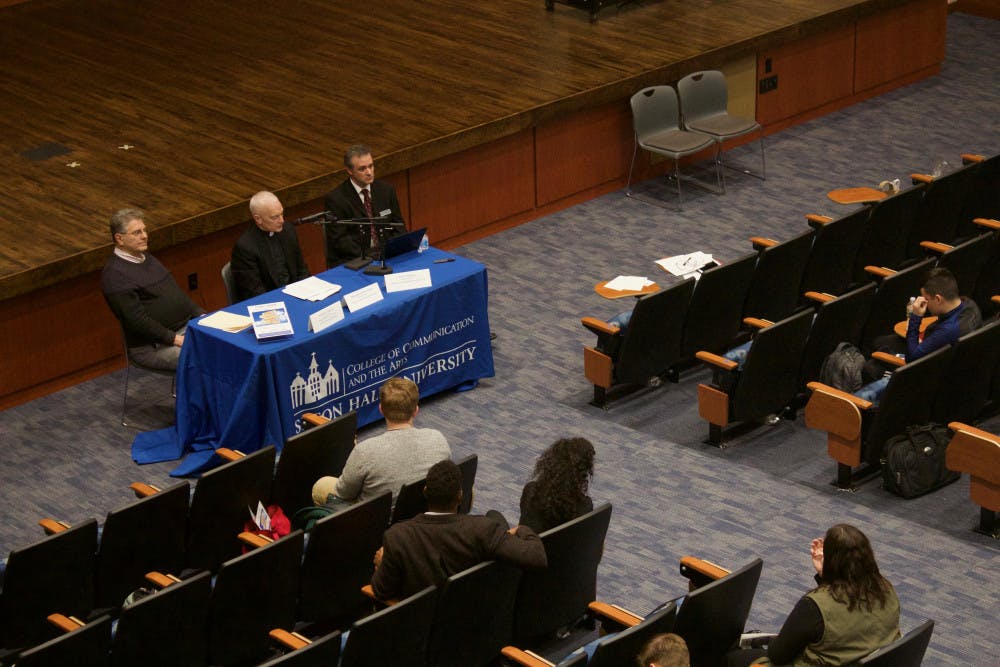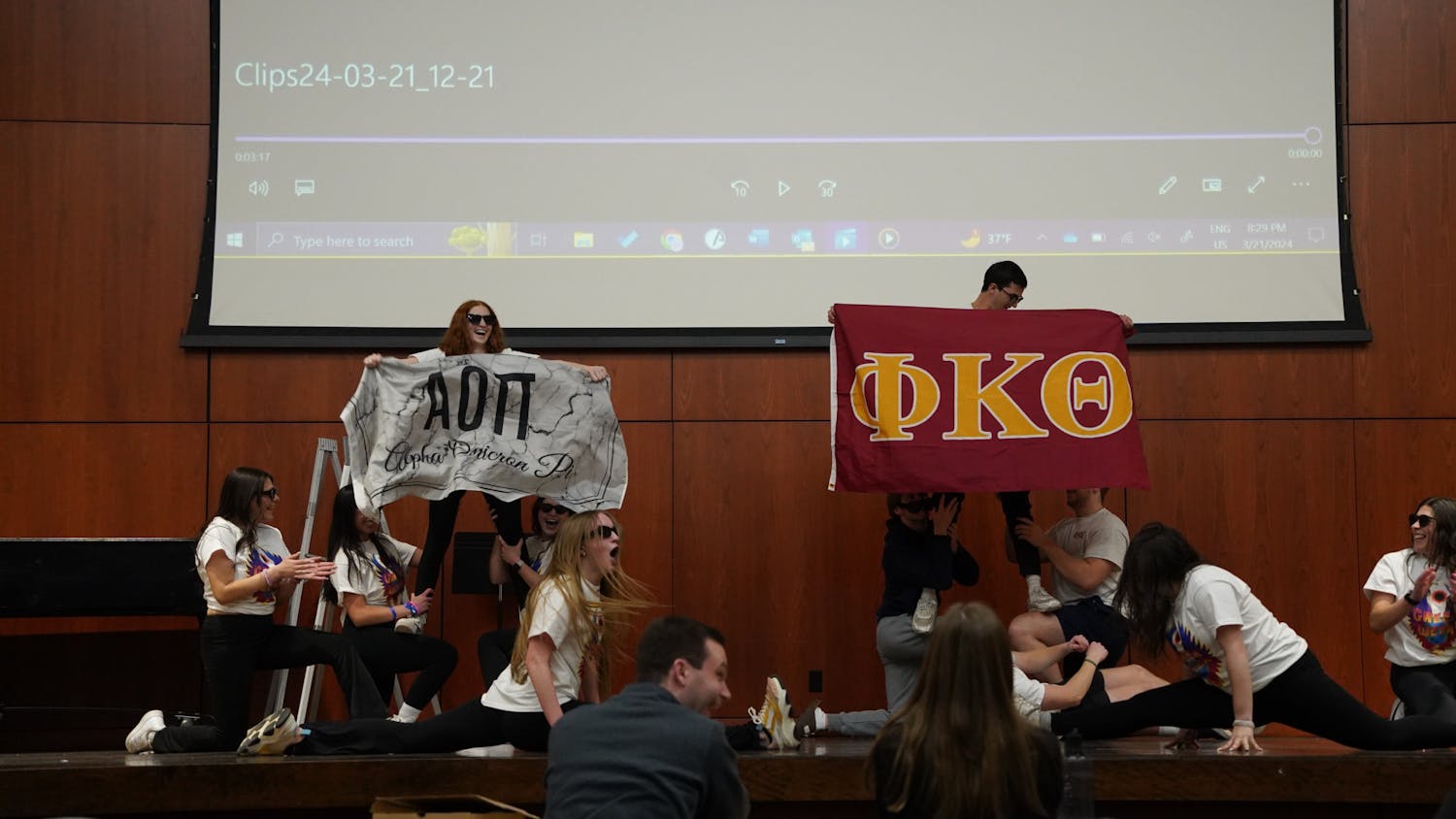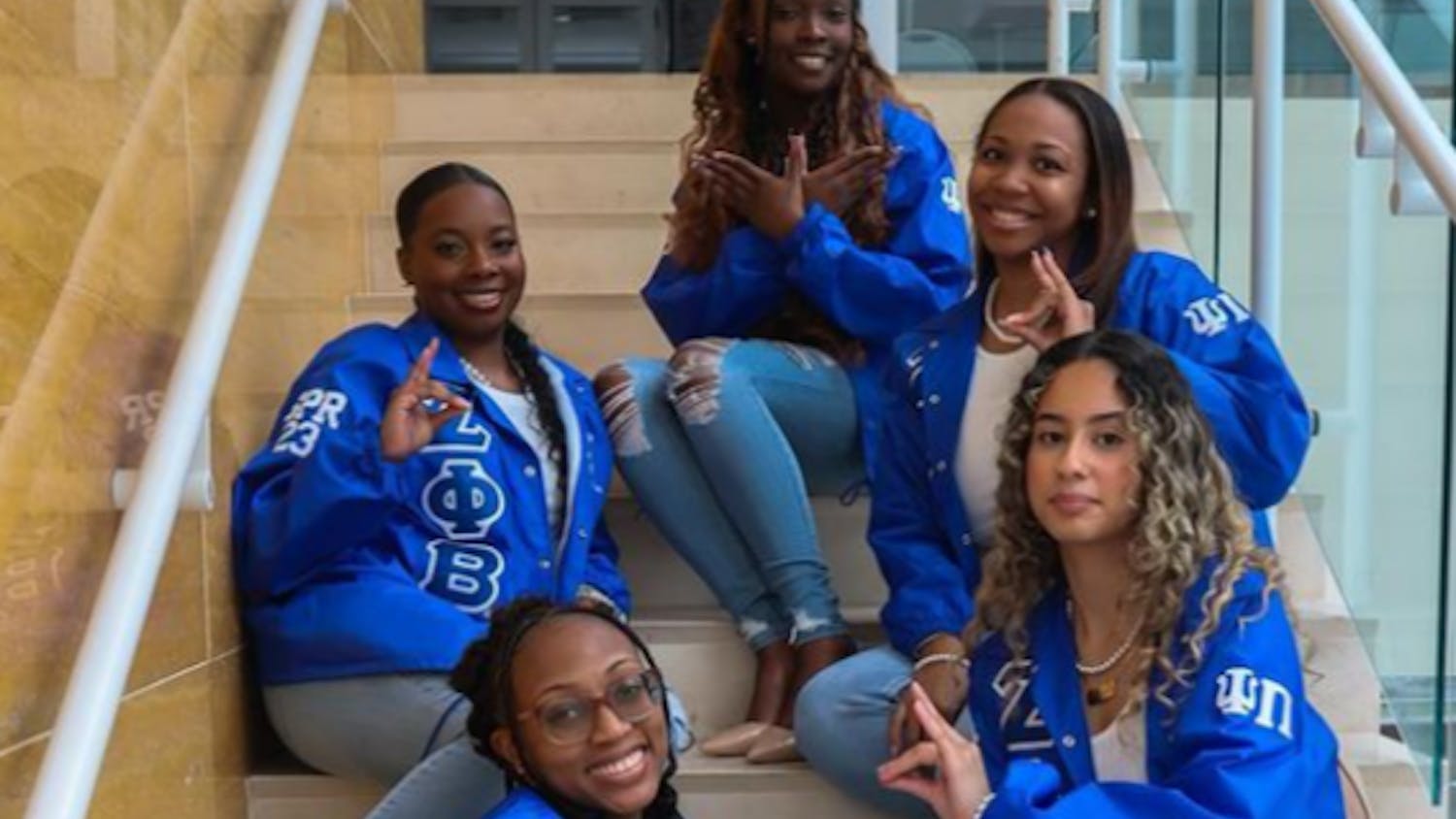The College of Communication and the Arts and the Institute for Communication and Religion hosted a symposium about civil discourse in America in the Jubilee Hall auditorium on Feb. 15. The event focused on the state and development of civil discourse in America and its expected future.
“Ethically Speaking: Is there Hope for Civil Discourse in America?” was led by Catherine Zizik, an associate professor of communication. Zizik said in her welcome speech that, according to the Center for Research and Health Affairs at the University of Chicago, 74 percent of Americans believe that civility matters and that behavior has been declining in the past year alone.
[caption id="attachment_21845" align="aligncenter" width="838"] Profs. discussed challenges the U.S. faces in communicating.
Profs. discussed challenges the U.S. faces in communicating.
Fabbielle Garcia/Staff Photographer[/caption]
Angela Kariotis, an instructor of communication, performed an opening act that addressed the issue of civil discourse through social media and the Internet, using body language to express how people can manifest themselves to attack each other. She incorporated several hashtags in her act, such as “#RealTalk.”
Kariotis said that she wanted to illustrate people’s attachment to beliefs and portray the role of social media as deconstruction civility.
“The hashtags were included because it’s fun,” Kariotis said. “They contextualize certain parts of the piece, they serve as anchors and it speaks to how hashtags staple our conversations thematically. We use hashtags to include ourselves in broader conversations.”
Kariotis said, as a society, people restructure their language to align it with their own truth instead.
Msgr. Dennis Mahon, an associate professor of communication, discussed Pope Francis’ recent message, “Fake news and journalism for peace,” and the incivility of fake news. Mahon said that the answer to fake news in the Pope’s perspective can be found in the New Testament passage, “The truth will set you free.”
According to the Pope’s message on Jan. 24, fake news, “refers to the spreading of disinformation online or in the traditional media. It has to do with false information based on non-existent or distorted data meant to deceive and manipulate the reader.”
Ryan McNeilly, a sophomore finance and information technology major, asked Mahon if there was truly a definition for truth through the eyes of the Pope, especially if individuals are able to embody their own truths.
“He [Pope Francis] emphasizes the more that we come to truth in relation to other people,” Mahon said. “You wouldn’t go into the discussion of, ‘Someone’s truth, someone else’s fake news.’ You have to talk that through.”
However, McNeilly said that he personally does not believe Mahon answered the question.
“To be fair, this is a very hard question to answer because there is no right answer,” McNeilly said. “Today, truth, as we know it, is in the eye of the beholder, so saying that there was one truth that will cure this fake news did not seem 100 percent right.”
The Seton Hall Intercollegiate Ethics Bowl Team presented a case study about social media being used as mediums for personal attacks. Zizik asked them if companies such as Facebook and Instagram ought to be responsible for personal attacks. The team concluded that the companies are not responsible.
Donald McKenna, a professor emeritus of communication, said in a statement.
“The idea for this symposium was a concern about the degeneration of our civil discourse in America.” He added. “My hope is that individuals will come together to say and do what is right. As a University community, we are coming together to reaffirm our respect for the dignity of every person.”
Liam Oakes can be searched liam.oakes@student.shu.edu.

Comments




